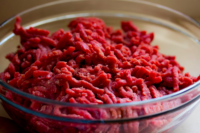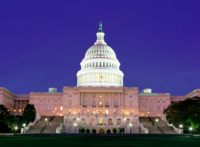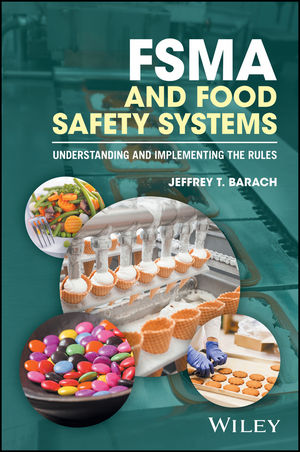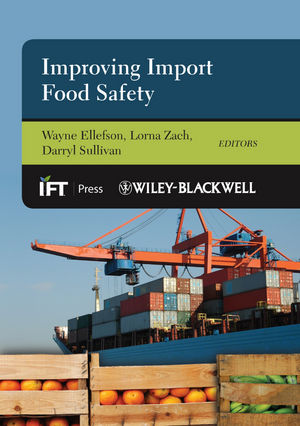Menu Labeling Finally Set to Go Live on May 7, But Congress Might Have Different Plans

If it seems like we have been talking about menu labeling for years, it is because we have been—for almost 8 years this month. And just when it seems like the U.S. Food and Drug Administration (FDA) will move menu labeling forward, Congress could thwart FDA’s plans.
Menu Labeling Rule
Section 4205 of the Affordable Care Act (ACA), which amended Sections 403(q)(5) and 403A of the Federal Food, Drug, and Cosmetic Act, requires disclosure of calorie and other nutrition information by restaurants and similar retail food establishments that are part of chains with 20 or more locations doing business under the same name and offering for sale substantially the same menu items (covered establishments). More specifically, FDA’s rule implementing the ACA requires that covered establishments post on menus and menu boards: (1) calorie information; (2) a statement on suggested daily caloric intake; and (3) a statement that written nutrition information is available upon request (and provide such information upon request).
Preemption
Per the nutrition labeling preemption language in the ACA, it seems clear that if a state or city tried to adopt menu labeling requirements that differ from FDA’s, such requirements would be preempted. In order for a federal rule to preempt a state or local one, one would assume that the federal rule has to be in effect, or at least is scheduled to go into effect. But what about a federal rule that is in effect but whose compliance date has been delayed multiple times and whose future is not entirely clear? While Congress enacted and President Barack Obama signed into law the federal menu labeling standard in 2010, FDA did not finalize its rule implementing the same until December 2014. Thereafter, FDA delayed the rule’s compliance date until December 1, 2016, then Congress delayed it again until May 5, 2017, and finally FDA delayed it once more until May 7, 2018.
Cue New York City
Soon after FDA’s most recent delay, New York City (NYC) mayor Bill de Blasio announced that the City would be enforcing its analog of FDA’s Menu Labeling rule, which is nearly identical to FDA’s rule except it applies to chains with 15 or more locations, rather than 20 or more. NYC first proposed chain restaurant calorie labeling in 2008, and then updated its rule in 2015, but delayed enforcement in anticipation of FDA’s rule. After FDA’s most recent delay, NYC decided to move forward. This decision raised an interesting preemption question: How, if at all, does delay of a federal rule affect the rule’s preemption of state and local requirements? And what about the fact that NYC’s rule applies to chains with 15 or more locations rather than FDA’s rule, which applies to chains with 20 or more locations?
Cue Industry and FDA
Unsurprisingly, on July 14, 2017, industry trade groups jointly filed suit to halt NYC from implementing its menu labeling rule. In the suit, the groups alleged that NYC’s rule is preempted by FDA’s rule. And on August 14, 2017, acting U.S. Attorney Joon Kim filed a statement of interest on behalf of FDA.
Shortly thereafter, the parties reached an agreement to ensure that NYC will not enforce its analog of FDA’s rule against plaintiffs’ members with 20 or more locations until May 7, 2018, when FDA plans to start enforcing its rule. Importantly, nothing in the stipulation prevents NYC from enforcing its rule against covered establishments that are not members of the trade groups or are part of a chain with fewer than 20 locations.
The agreement followed an announcement by FDA Commissioner Gottlieb that FDA would provide rule guidance by year’s end, which FDA later did. In response, NYC health commissioner Mary Bassett noted that “[s]hould the FDA fail to live up to this commitment…[the] City is prepared to defend its right, independent of FDA action, to enforce its requirements.”[1]
Cue Congress…Again
On February 6, 2018, the House of Representatives passed the Common Sense Nutrition Disclosure Act (CSNDA), introduced by Rep. Cathy McMorris Rodgers (R-Wash.) and Tony Cárdenas (D-Calif.). The legislation would ease the requirements of the Menu Labeling Rule in a few ways, including:
• In the case of a covered establishment where the majority of orders are placed online (e.g., a takeout and delivery pizza shop), the required calorie information would be able to be provided on the internet only (rather than in an on-premises writing);
• It would provide a 90-day grace period within which a covered establishment could correct any observed violation(s) without possibility of enforcement action;
• It would ease some of the requirements associated with listing calorie information for variable menu items and combination meals; and
• It would limit the amount of liability that covered establishments could face in certain civil actions for claims arising out of menu labeling violations.
Sen. Roy Blunt (R-Mo.) offered a companion bill in the Senate. Only three of the bill’s 16 co-sponsors are Democrats, and given the near evenly-divided Senate, where there is a slim Republican majority of 51-49, chances of passage if brought to a vote are unclear.[2] The legislation still must be voted out of committee in order to receive full Senate consideration.
What Does the Future Hold?
If the CSNDA dies in the Senate, it seems that FDA will have to move forward with its rule by May 7 if it wants to avoid the possibility of NYC enforcing its analog of the same before FDA enforces its rule. That said, courts have generally recognized federal agencies’ authority to set effective dates and compliance dates as they see fit, so any move by NYC to enforce its rule before FDA enforces its rule could be litigated. How much tolerance a court would have for another FDA rule delay is anyone’s guess. If the Senate passes the CSNDA and President Donald Trump signs it into law, per the legislation, FDA would need to promulgate additional regulations, thus further delaying menu labeling. Although it seems unlikely that NYC would press forward with its rule while FDA is promulgating further regulations, it is not out of the realm of possibility.
Jonathan Havens is the vice chair of Saul Ewing Arnstein & Lehr LLP’s Food and Beverage Practice. He has advised leading restaurant chains, supermarkets, and convenience stores regarding federal, state and municipal menu labeling requirements.
References
1. www.politico.com/states/new-york/albany/story/2017/08/25/new-york-city-wont-begin-enforcing-new-menu-labeling-rules-agrees-to-wait-for-fda-114157.
2. thehill.com/business-a-lobbying/372613-house-passes-bill-to-ease-menu-labeling-rules-under-obamacare.
Looking for a reprint of this article?
From high-res PDFs to custom plaques, order your copy today!








